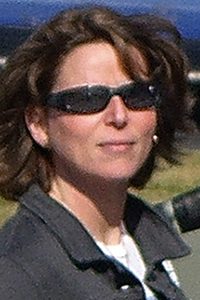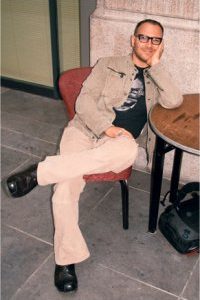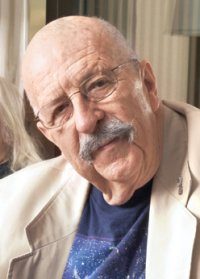Kameron Hurley: Writing is Hard, and That’s OK
 On winning the Oscar Award for best original screenplay, Jordan Peele admitted that he started his winning script for the film Get Out at least 20 times. Why 20? Because he just didn’t feel he could get the script to work, no matter how many times he tackled it.
On winning the Oscar Award for best original screenplay, Jordan Peele admitted that he started his winning script for the film Get Out at least 20 times. Why 20? Because he just didn’t feel he could get the script to work, no matter how many times he tackled it.
Author N.K. Jemisin relates a similar struggle in the writing of her masterful novel, The Fifth Season. In her acceptance speech for the Hugo Award for that novel, she says she believed that The Fifth Season was beyond her skill to write. “I thought no one would want to read it,” she said, and she thanked the numerous people who convinced her not to quit writing the book.
It’s stories like these, and my own struggles with my work, that make me wonder how many exceptional stories we’ve been denied because the difficulty involved felt overwhelming to their authors. Perhaps the creators didn’t have the support networks to encourage them to keep going. The truth is that when you are working on a piece that doesn’t seem to be working, it can feel demoralizing, like a personal failure. What we often fail to realize is that writing – though we are the only ones who can actually put the words to paper – is a collaborative act, requiring a lot of invisible voices along the way to help us keep going.
I have never wanted to quit writing more than I have in the last two years. The process feels as if it’s gotten harder. In truth, it feels harder because I’m working on more technically difficult pieces. The knowledge doesn’t make me feel any better when I’m banging my head against the wall on a project.
I’m currently working on a time-traveling military science fiction novel called The Light Brigade, and it’s been… a struggle. I kept getting to the point at which the events in the novel need to start happening out of order, and then… getting stuck. I’d write some stuff, throw it away, endlessly revise what I had, write up a lot of circle diagrams, plug stuff into Scrivener, bang my head against the desk, rewrite stuff again… and finally I just sent what I had, with a rough outline for the rest, to my editor and agent.
I felt like a totally failure.
My agent, Hannah Bowman, got on the phone with me and said, “Listen, this first part you’ve got is damn good.” (I sighed with relief, I admit.) The rest, she said, is confusing. Sure. But we’re going to map it out. Explain it to me.
So I did.
And she was like, “Oh, wow, yeah. This is a beast. This is tough.”
Cue my second sigh of relief.
I wasn’t crazy. I wasn’t a failure. I have just been working on something hard.
We discussed what we wanted to happen in the rest of the book, and how to solder together the partial scenes. We both made some notes. She said she’d send me an updated outline. She must have worked on it all day, because she kept sending me email updates in real time. They said stuff like: “Wait, now there’s three timelines!” “Now this character is caught in a time loop!”
And I said, “Yeah, you know: welcome to my world.”
It turns out her husband has a PhD. In math, and so helped her build… well, it’s a complicated if/then statement graph thing. Apparently it’s called “a directed Hamiltonian path through a bipartite graph.” What it did was help her run through models of how this time travel would work.
After doing that, she sent me three versions of what we could do. I revised the third one, the one we agreed on, and then used her breakdown of the Missions and Base Scenes to set up modular chunks in Excel saying who the protagonist’s team is, and what’s happening around them, at each of these points in time. Then, on the second tab, I scrambled those scenes up according to how we wanted the reader to experience them.
After I did that, I decided I wanted to time shift someone else and my agent was like, “Well, I ran her through the graph and we can have her do X or Y but not both.” And I was like, well, I’ll do whatever math says, then!
See, folks: I’m a real science fiction writer!
After we had solved the worst of the issues, I realized just how hard on myself I had been. I had thought I was stupid because I couldn’t figure this out, when in truth it took three of us to make it work. And I haven’t even heard from my editor yet, who may chime in with stuff we haven’t seen.
What I’m getting at here is that suffering a couple of setbacks can really hurt your self-esteem. It sure has hurt mine. But your biggest bully as you go forward with your career may end up being yourself, and how much you internalize all the crap the world throws at you. Having thick skin is great, but the reality is that over time, your skin gets rubbed raw in this business, and if it keeps getting hit without having the time to recover, well… you aren’t going to recover.
We have a really weird job. It’s this profession where you must spend time thinking very deeply about a thing, often alone, and bleed yourself into it, and then you have to present it to the world, and the world does with it whatever the hell it wants. It’s like watching dogs gnawing up pieces of you that you’ve cut up and thrown to them.
Sometimes you really are building a complex piece of work that requires your full brain power. And, maybe, the brain power of a village. It’s not because you’re lazy, or stupid, or behind, or other people are somehow geniuses. It’s because you really are doing something hard that you haven’t done before. And that’s a good thing! That’s being ambitious. That’s not settling for writing the same book over and over. Doing the hard thing is what leads to writing exceptional work.
The more self-doubt I experience, the more I wonder if the true test of working on something great is self-doubt. I’ve met several mid-career writers who admit that they are far more full of doubt now, three or six or ten books into their careers, than they were when they first began. While much of this is simply leveling up as a writer – you’re better able to see your work’s weaknesses – the truth is that the grind itself can wear us down. You feel your career should be in a certain place, or that you should sell a certain number of books. You feel like a failure for not writing quickly enough, not being nominated for awards, not being reviewed. There are a million ways to measure yourself.
One of those ways certainly shouldn’t be how difficult or easy it is to write your own work. If writing novels, and finishing them, and selling them, and continuing to do that year after year, was super easy, well…everyone would do it. And they don’t. Plenty of writers quit after a first book, a first series, or the end of their contracted books. I understand why they quit. They quit because for many of us, it doesn’t get easier. It gets harder.
But that’s where all the great work comes from… that place between the last book and the next, the long dark moments where it’s you and your self-doubt, and the hope and uncertainty of what comes next.
Kameron Hurley is the author of The Stars are Legion and the award-winning essay collection The Geek Feminist Revolution, as well as the God’s War Trilogy and The Worldbreaker Saga. Hurley has won the Hugo Award, Kitschy Award, Locus Award, BFA Award, and Sydney J. Bounds Award for Best Newcomer. She was also a finalist for the Arthur C. Clarke Award, the Nebula Award, and the Gemmell Morningstar Award. Her short fiction has appeared in Popular Science Magazine, Lightspeed Magazine, and many anthologies. Hurley has also written for The Atlantic, Bitch Magazine, The Village Voice, and Entertainment Weekly. She posts regularly at KameronHurley.com.
This column and more like it in the April 2018 issue of Locus.
 While you are here, please take a moment to support Locus with a one-time or recurring donation. We rely on reader donations to keep the magazine and site going, and would like to keep the site paywall free, but WE NEED YOUR FINANCIAL SUPPORT to continue quality coverage of the science fiction and fantasy field.
While you are here, please take a moment to support Locus with a one-time or recurring donation. We rely on reader donations to keep the magazine and site going, and would like to keep the site paywall free, but WE NEED YOUR FINANCIAL SUPPORT to continue quality coverage of the science fiction and fantasy field.








My feeling about a book is that if it doesn’t have that effect on its author (or some kind of learning experience), then it probably shouldn’t have been written. When I started my fantasy series, I knew that I would have to level-up as a writer multiple times to finish it. As Dave Duncan sort of said in his novel The Reaver Road, “some roads are so hard that no one who starts walking it ever finishes, and no one who completes it ever started.”